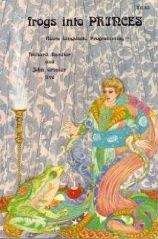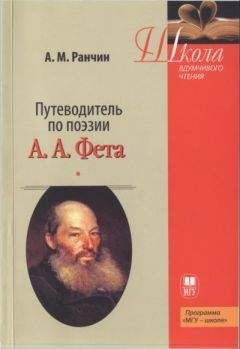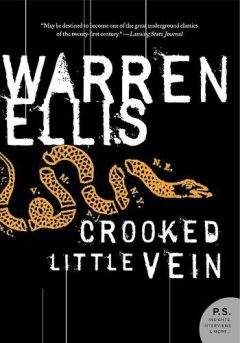Заблудшая дочь
Аллегория, направленная против неестественных законов, подавляющих и осуждающих естественные желания, подана здесь в форме мифа о Грехопадении, который Блейк переносит в некую "древнюю страну" и адресует "детям будущего": по сути, и первое, и второе - не что иное, как земная реальность, только в первом случае скованная цепями Уризена (воплощенного в фигуре Отца), а во втором - сбросившая его оковы.
Это одно из самых поздних стихотворений цикла, вошедшее только во второе авторское издание "Песен".
К Фирце
Это стихотворение было написано почти через десять лет после "Песен Опыта" (его датируют 1802-1805 гг.) и опирается на принципиально иную философскую систему. Фирца (ист. - столица Северного Царства; ср. Песнь Песней, 6: 4: "Прекрасна ты, возлюбленная моя, как Фирца, любезна, как Иерусалим") является у Блейка символом плоти, физической сущности человека, в противоположность Иерусалиму, символу сущности духовной. Вместо прославления земных, плотских радостей, характерного для "Песен Опыта", Блейк с негодованием отвергает закрепостившую душу плотскую оболочку, "склеп", в котором томится человеческий дух. Здесь использована перефразированная библейская цитата (Иоанн, 2: 4: "Что Мне и Тебе, Жено?") обращение Христа к матери. Вторая строфа является сжатым изложением мифа о Грехопадении, однако теперь Блейк возвращается к канонической его трактовке: чувственная любовь закрепостила чистую духовность, которая была уделом человека до падения. Нынче человечество пребывает в состоянии духовной слепоты и глухоты, но Христос, искупив первородный грех, вернул человека от плотского, низменного на путь к высотам духа, которые, по новой Блейковской концепции, превыше всех чувственных наслаждений.
Таким образом, по замечанию Гирша, стихотворение "К Фирце" является по отношению к "Песням Опыта" тем же, чем сами "Песни Опыта" являются по отношению к "Песням Невинности" - развенчанием прежней философской концепции и декларацией новой, более широкой. Это стихотворение стоит в цикле несколько особняком, ибо дает представление о мировоззрении Блейка на следующем этапе его духовного пути.
Ученик
Первоначально стихотворение входило в "Песни Невинности"). Видимо, дух протеста, которым оно пронизано, заставил Блейка позднее перенести его в "Песни Опыта", хотя его пасторальные образы скорее типичны для более раннего цикла. С другой стороны, противопоставление естественной жизни, воплощенной в природе. и сухого, догматического, книжного знания более свойственно блейковским взглядам периода "Песен Опыта". Однако по светлому, радостному образному строю стихотворение ближе к "Песням Невинности", я его следует рассматривать как "промежуточное" между двумя циклами.
Глас Древнего Барда
Это стихотворение также первоначально входило в "Песни Невинности", но принадлежит в равной мере обоим циклам и служит завершением всей книги: оно примиряет оба "состояния души человеческой", ибо заключенное в нем пророчество равно приложимо и к Вечности, и к Раю на земле - и к Невинности, и к Опыту и выражает главную, сквозную мысль обеих циклов: торжество свободного, раскрепощенного духа, избавленного от притворства и вековых заблуждений, как и торжество Воображения над Разумом, возможно и неизбежно.
* The Book of Thel *
Уильям БЛЕЙК
перевод С.Степанова
Книга Тэль
ДЕВИЗ ТЭЛЬ
О том, что в яме, расскажет Орел Или Крот ответит слепой? И Мудрость в серебряном есть ли жезле, А Любовь - в чаше златой?
Тэль
I
Свои стада по кругу гнали дщери Серафима. Все, кроме младшей, - та, бледная, потише уголок Искала, чтоб бесследно растаять, словно прелесть утра. Вниз по Адоне ее стенанья тихие несутся И, выпадая утренней росой, нисходят долу.
.
И Лилия Долины, благоухающая в разнотравье, Ответила прекрасной деве: . Что ж Тэль
печалит? О чем вздыхает возлюбленная Тэль в долинах Гара?>
Сказала так она и улыбнулась ей сквозь слезы.
Тэль отвечала:
Спустилось Облачко, а Лилия головку наклонила, Вернувшись к своим делам бессчетным и заботам.
II
. Главу златую Облачко открыло и заблистало, Спустившись с поднебесья прямо к Тэль.
.
И Облачко на невесомом троне откинулось и так
сказало:
И Червь бессильный выполз и лег на листик Лилии, А Облачко уплыло искать свою наперсницу в долине.
Ill
В изумленьи смотрела Тэль на бледное созданье.
.
И тут малютку услыхала Глина, над ним склонилась И млечным питием младенца напоила. Затем на Тэль взглянула, потупив очи.
Но за что? Не знаю я, и знать мне не дано Понять пытаюсь, но тщетно; живу я и люблю>.
Краем одежды Дочь Красоты утерла слезы И так сказала: .
.
IV
Решетку вечных врат приподнял Привратник
страшный, И Тэль вошла и увидала неведомую землю. Ей ложа мертвецов открылись, открылись корни Сердец живущих, тревожащие шевеленьем глубь Юдоль скорбей и слез, не знавшая вовек улыбки,
Брела она в юдоли туч и тьмы, внимая Стенаниям, и подле свежевырытых могил Прислушивалась к голосам земли в молчаньи, Покуда к собственной могиле не пришла. Присела там, И скорбный стон из пустоты провала к ней донесся:
И Дева содрогнулась, и с воплями бежала мест сих, Пока не возвратилась без препон в долины Гара.
КОНЕЦ
THE BOOK of THEL (1789)
THEL'S Motto,
Does the Eagle know what is in the pit?
Or wilt thou go ask the Mole:
Can Wisdom be put in a silver rod?
Or Love in a golden bowl?
THEL
I
The daughters of Mne Seraphim led round their sunny flocks. All but the youngest; she in paleness sought the secret air. To fade away like morning beauty from her mortal day: Down by the river of Adona her soft voice is heard: And thus her gentle lamentation falls like morning dew.
O life of this our spring! why fades the lotus of the water? Why fade these children of the spring? born but to smile fall. Ah! Thel is like a watry bow. and like a parting cloud. Like a reflection in a glass. like shadows in the water. Like dreams of infants. like a smile upon an infants face, Like the doves voice, like transient day, like music in the air; Ah! gentle may I lay me down, and gentle rest my head. And gentle sleep the sleep of death. and gentle hear the voice Of him that walketh in the garden in the evening time.
The Lilly of the valley breathing in the humble grass Answer'd the lovely maid and said; I am a watry weed, And I am very small, and love to dwell in lowly vales; So weak, the gilded butterfly scarce perches on my head. Yet I am visited from heaven and he that smiles on all. Walks in the valley. and each morn over me spreads his hand
Saying, rejoice thou humble grass, thou new-born lilly flower, Thou gentle maid of silent valleys. and of modest brooks; For thou shalt be clothed in light, and fed with morning manna: Till summers heat melts thee beside the fountains and the springs To flourish in eternal vales: then why should Thel complain,
Why should the mistress of the vales of Har, utter a sigh.
She ceasd smild in tears, then sat down in her silver shrine.
Thel answerd. O thou little virgin of the peaceful valley.
Giving to those that cannot crave, the voiceless, the o'ertired. t6 Thy breath doth nourish the innocent lamb, he smells thy milky garments,
He crops thy flowers. while thou sittest smiling in his face, Wiping his mild and meekin mouth from all contagious taints. Thy wine doth purify the golden honey, thy perfume, Which thou dost scatter on every little blade of grass
Revives the milked cow, tames the fire-breathing steed. But Thel is like a faint cloud kindled at the rising sun: I vanish from my pearly throne, and who shall find my
Queen of the vales the Lilly answerd, ask the tender cloud,
And it shall tell thee why it glitters in the morning sky, And why it scatters its bright beauty thro' the humid air. Descend O little cloud hover before the eyes of Thel.
The Cloud descended, and the Lilly bowd her modest head: And went to mind her numerous charge among the verdant grass.
&&&& II.
O little Cloud the virgin said, I charge thee tell to me, Why thou complainest not when in one hour thou fade away: Then we shall seek thee but not find; ah Thel is like to thee. I pass away. yet I complain, and no one hears my voice.
The Cloud then shew'd his golden head his bright form emerg'd, Hovering and glittering on the air before the face of Thel.
O virgin know'st thou not. our steeds drink of the golden springs Where Luvah doth renew his horses: look'st thou on my youth,
And fearest thou because I vanish and am seen no more. Nothing remains; O maid I tell thee, when I pass away, It is to tenfold life, to love, to peace, and raptures holy: Unseen descending, weigh my light wings upon balmy flowers;
And court the fair eyed dew. to take me to her shining tent; The weeping virgin, trembling kneels before the risen sun, Till we arise link'd in a golden band, and never part; But walk united, bearing food to all our tender flowers
Dost thou O little Cloud? I fear that I am not like thee; For I walk through the vales of Har. and smell the sweetest flowers; But I feed not the little flowers: I hear the warbling birds, But I feed not the warbling birds. they fly and seek their food; But Thel delights in these no more because I fade away, And all shall say, without a use this shining woman liv'd, Or did she only live. to be at death the food of worms.
The Cloud reclind upon his airy throne and answer'd thus.
Then if thou art the food of worms. O virgin of the skies, How great thy use. how great thy blessing; every thing that lives, Lives not alone, nor for itself: fear not and I will call The weak worm from its lowly bed, and thou shalt hear its voice. Come forth worm of the silent valley, to thy pensive queen.
The helpless worm arose, and sat upon the Lillys leaf, And the bright Cloud saild on, to find his partner in the vale.
& III.
Then Thel astonish'd view'd the Worm upon its dewy bed.
Art thou a Worm? image of weakness. art thou but a Worm? I see thee like an infant wrapped in the Lillys leaf: Ah weep not little voice, thou can'st not speak. but thou can'st weep; Is this a Worm? I see thee lay helpless naked: weeping, And none to answer, none to cherish thee with mothers smiles.
The Clod of Clay heard the Worms voice, raisd her pitying head; She bowd over the weeping infant, and her life exhal'd In milky fondness, then on Thel she fix'd her humble eyes.
O beauty of the vales of Har. we live not for ourselves, Thou seest me the meanest thing, and so I am indeed; My bosom of itself is cold. and of itself is dark,
But he that loves the lowly, pours his oil upon my head. And kisses me, and binds his nuptial bands around my breast.
And says; Thou mother of my children, I have loved thee. And I have given thee a crown that none can take away But how this is sweet maid, I know not, and I cannot know,
I ponder, and I cannot ponder; yet I live and love.
The daughter of beauty wip'd her pitying tears with her white veil, And said. Alas! I knew not this, and therefore did I weep:
That God would love a Worm I knew, and punish the evil foot That wilful, bruis'd its helpless form: but that he cherish'd it With milk and oil, I never knew; and therefore did I weep, And I complaind in the mild air, because I fade away, And lay me down in thy cold bed, and leave my shining lot. Queen of the vales, the matron Clay answerd; I heard thy sighs. And all thy moans flew o'er my roof. but I have call'd them down: Wilt thou O Queen enter my house. 'tis given thee to enter,



